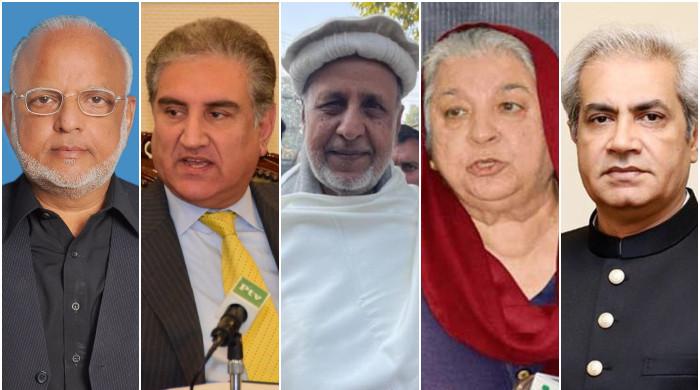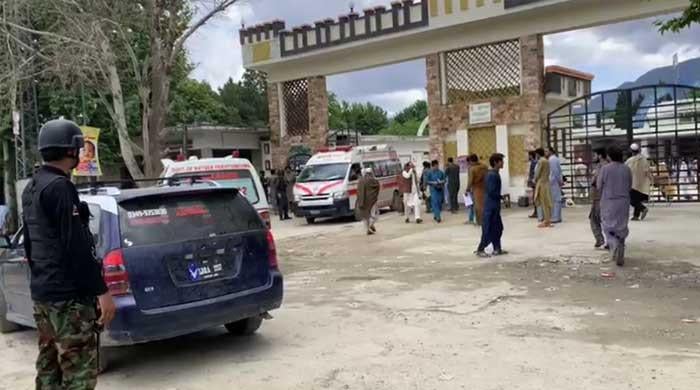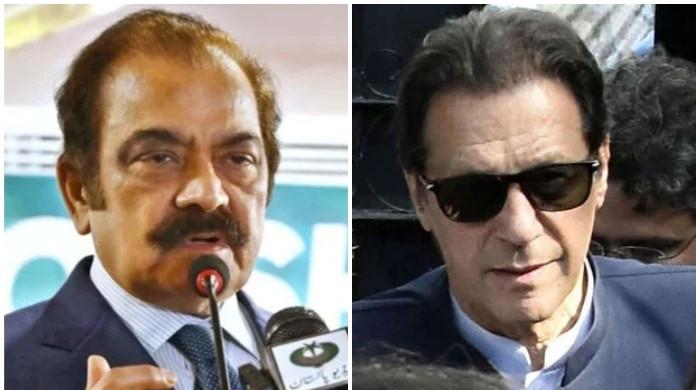Remembering Jam Saqi, the activist who never lost his way
The veteran political and social worker passed away on Monday
March 05, 2018

If Pakistan was to ever compile a list of those who fought bravely for the downtrodden sections of society, Jam Saqi’s name would appear on the top, in bold. The left-wing politician struggled all his life for an equal society. He made no compromises and he never abandoned his principles. His legacy, I am certain of it, will herald a revolution, whether today or tomorrow.
Saqi was born on October 31, 1944, in Jhanji, a small village in Thar, Sindh. A century before he came into the world, General Hosh Muhammad Sheedi, a commander of the Sindh’s Talpur army, fought a gorilla war against the invading British forces. From his blood rose the immortal slogan, ‘Marsoon, Marsoon, Sindh Na Desoo,’ (We shall die but not give up Sindh). Those words later became Saqi’s favourite phrase.
Whenever he would reminisce about his childhood, he would recall hearing hawkers scream out the day’s newspaper headlines. Inside his house, his father would occasionally spend hours with his friends debating national and international political happenings. “Lenin has put together an army of labourers and they will rule…” he remembered his father saying on one occasion.
Saqi’s father, Mohammad Bachal, was a teacher at a primary school and a social worker. He brought home a paltry amount every month, of which a large share would be spent on uplift projects in his area.
In 1961, Saqi took part in a debate competition. He won. His topic was Liaquat Ali Khan. One of his teachers present that day, was part of an underground communist network. The boy impressed him. The interaction between the two turned Saqi’s life around. In 1962, he completed his matriculation and then moved to Hyderabad to enrol in the Government College.
During this time, his interest in Communism grew. While still a student, he wrote against the prime minister’s One Unit policy and sold the pamphlets for 10 paisas. The pamphlet was promptly banned, leading to an unprecedented rise in his popularity.
But that did not stop his political activities. In 1963, a young Saqi and his friends began demanding that school examinations be held in the students’ mother tongue, additional seats be added to accommodate all students who passed entrance tests, so that no one in turned away, and the students should only be made to pay fees once, at the time of admission.
A year later, he formed the Hyderabad Students Federation. In November, a student convention was held where Yousaf Khan Leghari, who later became a well-known lawyer and activist, was chosen as the convener and Saqi was appointed the secretary general. Around the same time, Saqi and his father developed serious differences. Bachal was insistent that his son pursue sciences, but Saqi had other plans. He received a letter from his father ordering him to either continue his studies or return to the village. So, the boy dropped out of school and began looking for a job. It was a tough time for him to manage financially. Finally, he found employment at a local office of Water and Power Development Authority. However, in the evenings he would return to his campus to continue his student activism.
Few know this about him, but he also took part in and supported Fatima Jinnah’s political campaign against Gen Ayub Khan.
After ZA Bhutto left Gen Khan’s cabinet, he was invited by Inayat Kashmiri to address a convention of the Hyderabad Students Federation. That was the first time Saqi met Bhutto.
Bhutto was unsure about addressing the convention. He told Saqi that since Khan considered him an enemy if he were to address the convention then the general’s men would likely hound the students who attended. The young boy replied, “We are not one of those who can be easily scared.” Bhutto gave a rousing speech against Israel, India and Ayub Khan. But never said a word about the One Unit policy.
Later, Saqi wrote to Bhutto to ask him how he could oppose the general and not his policy of One Unit. The political leader would still not speak against the policy, but he vowed to stay silent on it instead and continue to raise his voice in favour of democracy. The boys were unconvinced.
Bhutto then sent out feelers to be invited as a guest of honour to the student federation’s annual gathering. Saqi, while unsure, accepted the offer. When the two men met the second time, Bhutto placed his hand on Saqi’s shoulder and said, “I will never forget this favour.” And he didn’t. As soon as Z.A. Bhutto became the president of Pakistan, he had Saqi arrested. A short while before that, Saqi had held the first convention of the Sindh National Students Federation (NSF), where he was elected president of the body. It was as if with the appointment the jail doors had opened for him.
From 1966 to 1969, he was arrested and locked up several times.
Later on in life, Saqi served as the general secretary of the Communist Party of Pakistan. He joined the Pakistan People’s Party in the 90s.











